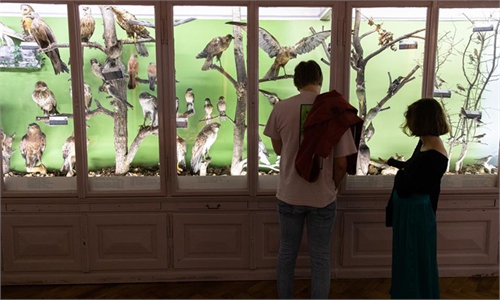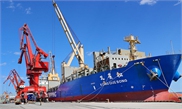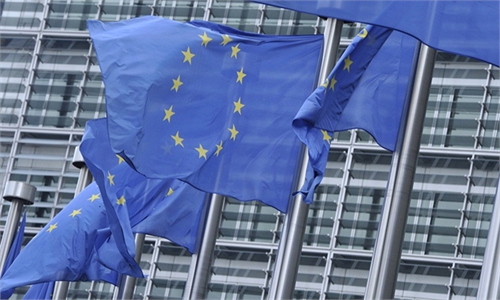China, EU seek to inject momentum in recovery
No fundamental conflict between two sides: President Xi
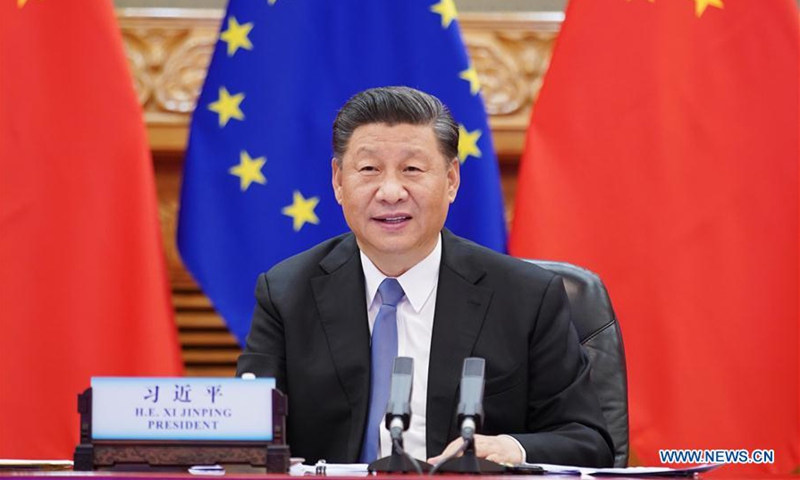
Chinese President Xi Jinping meets with President of the European Council Charles Michel and President of the European Commission Ursula von der Leyen via video link in Beijing, capital of China, June 22, 2020. (Xinhua/Wang Ye)
The high-level leaders' meeting between China and the EU on Monday expressed the willingness for the two sides to continuously enhance mutual political trust amid coronavirus epidemic and the shadow of a US-instigated new cold war, paving the way for reaching a bilateral investment agreement in the coming months, as some observers forecast. China and the EU are not systematic rivals, Beijing and Brussels should put consensus above divergences on some issues such as Hong Kong and Xinjiang to fuel world's recovery in the post-epidemic era, they noted.
The 22nd EU-China summit took place on Monday via videoconference during which Chinese President Xi Jinping and Premier Li Keqiang met with Charles Michel, President of the European Council, as well as Ursula von der Leyen, President of the European Commission. Issues addressed at this virtual meeting included cooperation on the COVID-19 response, China-US relations, and other global and regional issues.
Xi stressed that there is no fundamental conflict between China and the EU, and cooperation outweighs competition, so does consensus that exceeds divergences. China is a partner to EU rather than being a rival, the Chinese President said, urging that two sides to become major forces of safeguarding global peace and stability.
During the meeting, Premier Li and the EU leaders noticed the progress made in the negotiations and reaffirmed that both sides were committed to concluding the China-EU Comprehensive Investment Agreement in 2020, the Xinhua News Agency reported Monday.
The two sides are eager to enhance trust to achieve concrete results for the overdue investment agreement by the end of 2020, highly likely in November, Wang Yiwei, the director of the institute of international affairs at Renmin University of China in Beijing told the Global Times.
China and EU have been negotiating on the comprehensive agreement on investment since November 2013, and are scheduled to hold the 30th round of negotiations between June 29 and July 3.
"As Germany takes the lead in the EU as it will assume the rotating presidency from July 1 to December 31, it's an urgent task for German Chancellor Angela Merkel to finalize the agreement before December, given it could be her political legacy," Wang said.
The summit took place against the backdrop of the US rallying its Western allies to continue exerting pressure on the Chinese government over a number of matters, such as the epidemic response, upcoming national security law for Hong Kong, Xinjiang governance and human rights.
The EU's differing views on the upcoming national security law for Hong Kong are conceivable. Although the EU now stresses its geopolitical realism, it is also emphasizing its own values. Such differences have a long history and cannot be concealed, said Wang.
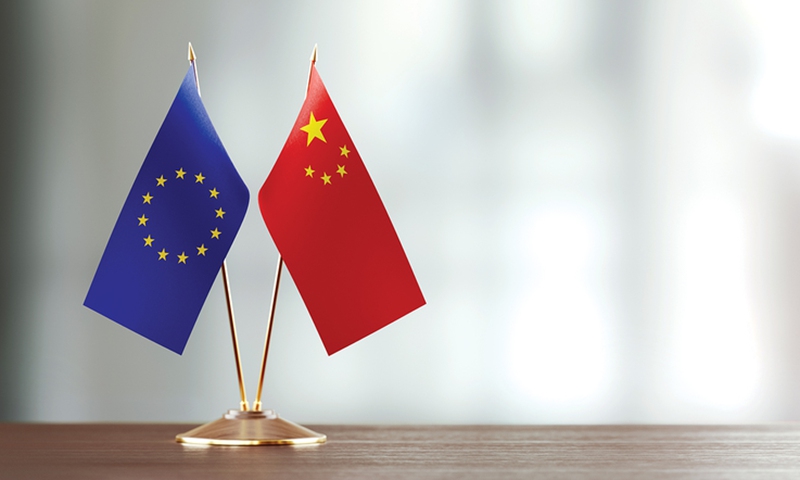
Photo: VCG
Pragmatic view
The Chinese President urged two sides to remain two-way market opening up while accelerating negotiations on China-EU trade investment agreement, which is also seen as a 'milestone result' of strategic partnership development of the two major economies across the world.
The EU strongly emphasized the need to advance negotiations for the EU-China Comprehensive Investment Agreement that addresses the current asymmetries in market access and ensures a level playing field, according to its official statement.
The pragmatic view of China and EU from the perspective of policymakers is difficult to be swayed by lobbying efforts of some politicians like US Secretary of State Mike Pompeo, some observers noted.
The EU and China need each other on global affairs such as addressing global health threats through international cooperation, working on WTO reform, facing climate change and collaborating on African issues, as the European Council described in its fact sheets on bilateral ties.
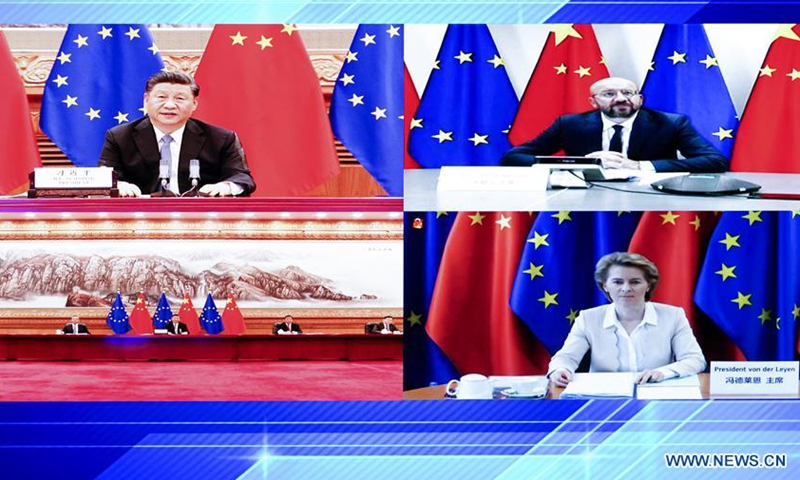
Chinese President Xi Jinping meets with President of the European Council Charles Michel and President of the European Commission Ursula von der Leyen via video link in Beijing, capital of China, June 22, 2020. (Xinhua/Yan Yan)
Toward an agreement
The high-level meeting on Monday was also believed to have paved the way to accelerating talks on a long-overdue investment treaty, which would also inject new momentum for European economic recovery in the post-epidemic era.
EU-China Comprehensive Agreement on Investment talks scheduled to conclude by the end of 2020 is progressing as scheduled, despite the impact of the global pandemic. China and the EU held three rounds of talks between March and May, with negotiation arrangements already being made for the next several months.
In 2019, the EU was China's biggest trading partner, while China was EU's second-largest. Trade in goods between the two was worth more than 1.5 billion euro ($1.68 billion) a day.
European companies have long been attracted to Chinese market, thanks to its sheer size and huge growth potential. Even during the worst stage of the COVID-19 outbreak in China in February, nearly 50 percent of 1,700 EU companies operating in China were optimistic about their growth over the next two years, according to a survey conducted by the European Union Chamber of Commerce in China.
As for the EU's push for China to open up its market equally, the bloc should consider China's domestic conditions and not politicize economic and trade issues, said Cui Hongjian, director of the Department of European Studies, China Institute of International Studies.

